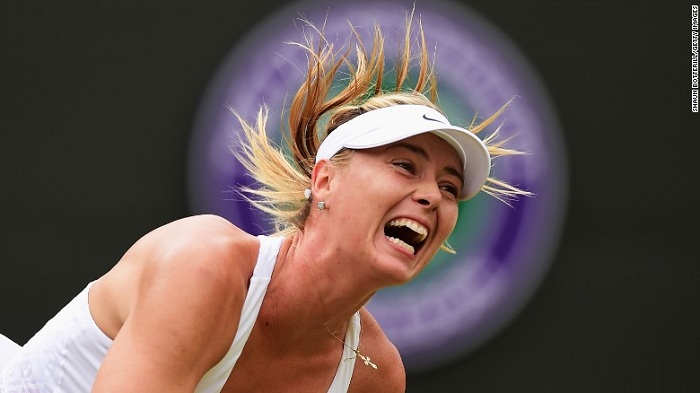Sharapova tested positive for banned substance meldonium at the Australian Open in January and was subsequently banned for two years by the International Tennis Federation (ITF).
But CAS has shaved nine months off that original verdict, meaning Sharapova is eligible to compete again on April 25.
"The Panel found that Ms Sharapova committed an anti-doping rule violation and that while it was with "no significant fault", she bore some degree of fault, for which a sanction of fifteen months is appropriate," said a statement on CAS`s official website.
"The Panel wishes to point out that the case it heard, and the award it has rendered, was only about the degree of fault that can be imputed to the player for her failure to make sure that the substance contained in a product that she had been taking over a long period remained in compliance with the anti-doping rules."
Sharapova relief
Sharapova immediately expressed her relief at the reduction of her ban, and took aim at the ITF, saying she hoped they would learn from this experience.
"I`ve gone from one of the toughest days of my career last March when I learned about my suspension to now, one of my happiest days, as I found out I can return to tennis in April," she said in a statement.
"In so many ways, I feel like something I love was taken away from me and it will feel really good to have it back. Tennis is my passion and I have missed it. I am counting the days until I can return to the court. I have learned from this, and I hope the ITF has as well. CAS concluded that "the Panel has determined it does not agree with many of the conclusions of the [ITF] Tribunal."
"I have taken responsibility from the very beginning for not knowing that the over-the-counter supplement I had been taking for the last ten years was no longer allowed. But I also learned how much better other Federations were at notifying their athletes of the rule change, especially in Eastern Europe where Mildronate is commonly taken by millions of people.
"Now that this process is over, I hope the ITF and other relevant tennis anti-doping authorities will study what these other Federations did, so that no other tennis player will have to go through what I went through.
"And to my fans, I thank you so much for living and breathing so many of these tough months together. During this time, I have learned the true meaning of a fan and I am so fortunate to have had your support. I`m coming back soon and I can`t wait."
Tennis world stunned
The sport was plunged into shock when Sharapova announced at a Los Angeles press conference in March she had failed a drugs test. A provisional ban was announced by the ITF shortly after.
Sharapova said she was first prescribed meldonium, also known as mildronate, in 2006 for heart issues and was unaware it had been added to the banned substance list by the World Anti-Doping Agency (WADA) as of January 1.
She acknowledged taking it before each match she played at the Australian Open as she was knocked out of the tournament at the quarterfinal stage by her nemesis Serena Williams.
Handing down the two-year ban, an independent panel appointed by the ITF ruled Sharapova hadn`t used meldonium as a vehicle for cheating but stated the former world number one was "the sole author of her misfortune."
More about:
















































